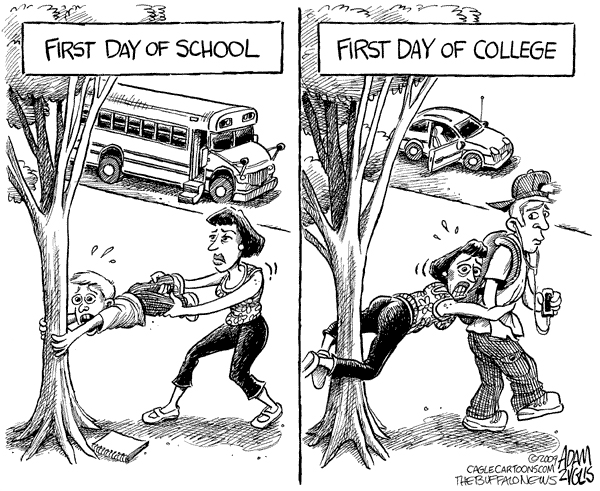My research assistant sent me this notice. Given all our discussion of epublishing (and tenure) he wondered whether this is a good investment of his time. I wonder that as well. And what of the quality of the project? I know, having contributed many articles myself, that dictionaries are often made up of entries created by diligent grad students but what do you all think of this project? Is this a good example of the potential of epublishing or a potential example of the difficulties of not having a traditional editorial/vetting system?
Want to get published?
Want to participate in creating the first all-digital scholarly Bible dictionary?
If you’re in a graduate program and know one of the biblical languages, we would love to hear from you. Let Jessi Gering know what your specialty is by emailing her at jessi.gering@logos.com.
John D. Barry
Book Publisher and Editor-in-Chief
Logos Bible Software




13 thoughts on “ePublished Bible Dictionary?”
I have responded to this email, personally. Logos is looking for writing samples prior to accepting your topic proposals. I hope to learn more soon.
I tend to think that there are probably numerous Bible Dictionaries online already. Here is a link to our church’s Bible Dictionary online:
http://lds.org/scriptures/bd?lang=eng
They are also looking for an intense level of commitment. They told me that they are looking for authors who can contribute 15 entries at 2000-2500 words each, completing 5 of these every four weeks. It sounds like they are willing to compromise, but if this is their standard, I do believe this speaks to the level of quality they will be able to gather. What graduate student can produce a high quality entry of over 2000 words in a week or less — for three months straight?
I got the email as well. I didn’t email back. “Want to get published?” sounded like the academic equivalent of an email entitled “Are you lonely tonight?”
Given Pat’s info above, I think the correlation might have been closer than I had even thought…
Just to clarify, we are not planning to have a Bible dictionary written completely by graduate students. We are inviting scholars and subject matter experts to contribute specific articles.
A comprehensive Bible dictionary includes thousands of articles, though, and many are on subjects about which there is little recent discovery or scholarship. We believe these present an excellent opportunity for graduate students to contribute while building their CV.
(We also find graduate students more receptive to the idea that scholarship can appear digitally, not just on printing presses. )
I want to assure you that we have the highest standards for scholarship, and are working to build a quality dictionary for the digital generation. If you Google the forthcoming Evangelical Exegetical Commentary you’ll see a list of well-known scholars already working with us on a digital edition.
And this work, while born digitally, may yet appear in print. (The “retro” edition, as we think of it!) We’re in negotiations to print the EEC, and two of our recent digital-first projects were just released in print at SBL: The SBL Greek New Testament, ed. by Michael Holmes, and Steven Runge’s Discourse Grammar of the Greek New Testament (Hendrickson). John Barry’s own The Resurrected Servant in Isaiah is forthcoming from Biblica.
As for the “Want to get published?” tag line, I plead “marketing”. It was intended to aim at the graduate student’s felt need. We’re experimenting with different appeals to more experienced scholars:
“Boring people at cocktail parties? Do you know more than anyone on earth about ? Write the definitive article and let it out, release your burden, and be the life of the party!…”
🙂
Bob Pritchett
President, Logos Bible Software
Bob – Thank you for replying! I do not think this audience is concerned about the digital aspect of the publication, rather the quality. Grad students can produce very good work, so that is not the issue and all dictionaries, digital or otherwise, work on that model. The question that I wonder if you could answer is who is on the editorial board. What mechanism will there be for determining and ensuring the quality of the articles ultimately published?
Regarding digital to print publishing, in the two sessions at SBL the GNT project did come up as an example of how scholarship can move smoothly from one direction to the other (and raised questions of why it still needed to “go retro”). So your work their was noticed and duly recognized.
Thanks again for replying and I look forward to hearing more about this project.
Well said, Chris. And thanks to Bob for the reply. Personally, I do see the value in an electronic edition, but in addition to those editorial questions, I also have questions about whether those entries on the CV will really count for much in the job hunt. Having a few dictionary articles is okay, but I suspect not really a big deal when one is on the market. I would think an electronic/digital dictionary would be perceived as even less of a big deal by potential employers.
My bigger concern, as expressed above and not addressed in Bob’s response, is the speed at which these entries are expected to be completed. It seems impossible to me to expect quality from such expectations.
Bob,
Thanks for the info! BTW I think the cocktail party line will work wonderfully. I often describe my dissertation in such circumstances as something only about two dozen people in the world will understand or care about. :-/
Two dozen! That’s ambitious 🙂